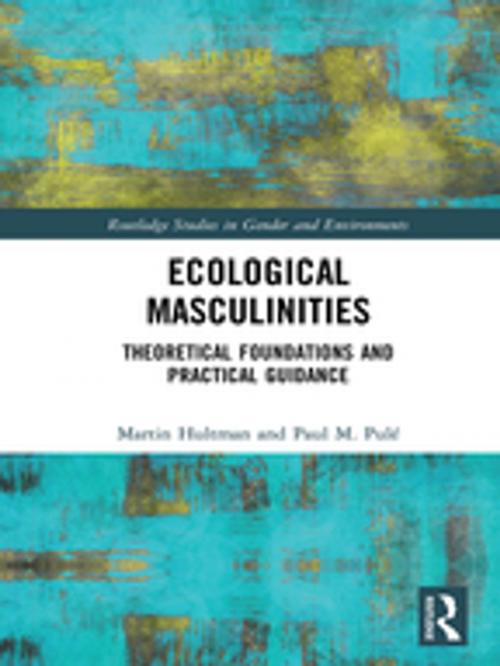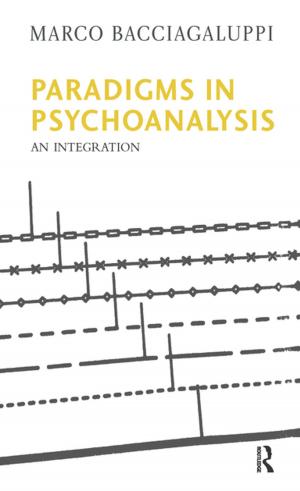Ecological Masculinities
Theoretical Foundations and Practical Guidance
Business & Finance, Economics, Sustainable Development, Nonfiction, Science & Nature, Nature, Environment, Ecology, Religion & Spirituality, Philosophy| Author: | Martin Hultman, Paul M. Pulé | ISBN: | 9781351763400 |
| Publisher: | Taylor and Francis | Publication: | September 26, 2018 |
| Imprint: | Routledge | Language: | English |
| Author: | Martin Hultman, Paul M. Pulé |
| ISBN: | 9781351763400 |
| Publisher: | Taylor and Francis |
| Publication: | September 26, 2018 |
| Imprint: | Routledge |
| Language: | English |
Around the globe, unfettered industrialisation has marched forth in unison with massive social inequities. Making matters worse, anthropogenic pressures on Earth’s living systems are causing alarming rates of thermal expansion, sea-level rise, biodiversity losses in terrestrial and aquatic ecosystems and a sixth mass extinction. As various disciplines have shown, rich white men in the Global North are the main (although not the only) perpetrators of this slow violence. This bookdemonstrates that industrial/breadwinner masculinities have come at terrible costs to the living planet and ecomodern masculinities have failed us as well, men included.
This book is dedicated to a third and relationally focused pathway that the authors call ecological masculinities. Here, they explore ways that masculinities can advocate and embody broader, deeper and wider care for the global through to local (‘glocal’) commons. Ecological Masculinities works with the wisdoms of four main streams of influence that have come before us. They are: masculinities politics, deep ecology, ecological feminism and feminist care theory. The authors work with profeminist approaches to the conceptualisations and embodiments of modern Western masculinities. From there, they introduce masculinities that give ADAM-n for Earth, others and self, striving to create a more just and ecologically viable planet for all of life.
This book is interdisciplinary. It is intended to reach (but is not restricted to) scholars exploring history, gender studies, material feminism, feminist care theory, ecological feminism, deep ecology, social ecology, environmental humanities, social sustainability, science and technology studies and philosophy.
Around the globe, unfettered industrialisation has marched forth in unison with massive social inequities. Making matters worse, anthropogenic pressures on Earth’s living systems are causing alarming rates of thermal expansion, sea-level rise, biodiversity losses in terrestrial and aquatic ecosystems and a sixth mass extinction. As various disciplines have shown, rich white men in the Global North are the main (although not the only) perpetrators of this slow violence. This bookdemonstrates that industrial/breadwinner masculinities have come at terrible costs to the living planet and ecomodern masculinities have failed us as well, men included.
This book is dedicated to a third and relationally focused pathway that the authors call ecological masculinities. Here, they explore ways that masculinities can advocate and embody broader, deeper and wider care for the global through to local (‘glocal’) commons. Ecological Masculinities works with the wisdoms of four main streams of influence that have come before us. They are: masculinities politics, deep ecology, ecological feminism and feminist care theory. The authors work with profeminist approaches to the conceptualisations and embodiments of modern Western masculinities. From there, they introduce masculinities that give ADAM-n for Earth, others and self, striving to create a more just and ecologically viable planet for all of life.
This book is interdisciplinary. It is intended to reach (but is not restricted to) scholars exploring history, gender studies, material feminism, feminist care theory, ecological feminism, deep ecology, social ecology, environmental humanities, social sustainability, science and technology studies and philosophy.















